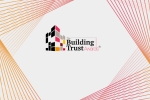Where do Malaysian companies stack up in communicating performance and prospects?
Integrated reporting helps companies build trust and create long term value
KUALA LUMPUR, 10 July 2014 - Malaysian businesses have the basics of reporting covered but they still have a long way to go to truly embrace integrated reporting, an evolution of corporate reporting based on the International Integrated Reporting Council (IIRC)’s Integrated Reporting Framework.
‘The state of integrated reporting in Malaysia’, PwC Malaysia’s analysis of Bursa Malaysia’s top 30 companies’ annual reports against the Integrated Reporting Framework, revealed that most companies already disclose some of the key elements from the Framework. But there is a lack of linkage between the elements, which stems from siloed reporting and too much focus on describing process rather than providing insight.
The mindset behind Integrated Reporting is “integrated thinking” – a process in which companies report on inputs beyond just financial inputs, and more about outcomes rather than outputs.
“While there is a growing awareness of integrated reporting among companies in Malaysia, many companies still do not fully appreciate the value it brings to their business. Some may still view it as a compliance-driven add-on which results in more work when preparing their reports,” said Sridharan (Sri) Nair, managing partner of PwC Malaysia.
“The very nature of integrated reporting which captures how companies create value both tangibly and intangibly over time, allows companies to communicate their true worth to their stakeholders. This can be a significant competitive advantage, helping companies to focus on true value drivers of their business and articulate their own story instead of allowing the market to define the narration,” he continued.
The Integrated Reporting Framework recommends that reports include the following key Content Elements: Organisational overview and external environment, Strategy and resource allocation, Business model, Opportunities and risks, Governance, Performance, and Future outlook.
According to PwC’s analysis against these Content Elements, 90% of companies provide a high level strategic vision of where they aspire to be. However, only 33% include information on their strategic priorities in their annual report.
90% provide some detail on the market trends driving their growth but only 20% link this discussion to the strategic choices they make in response to these trends.
When discussing their business model, 43% included the term ‘business model’ in their report but only 7% of those explicitly link the business model to value creation.
87% refer to culture, values and tone from the top when discussing governance. Unsurprisingly, only 10% of the companies surveyed moved beyond a ‘boilerplate’ style of reporting to provide insight on corporate governance activities.
Risk disclosure was one of the lowest scoring areas among the companies surveyed, putting Malaysia behind more developed markets. While all the companies surveyed included a statement of risk management and internal control (SRMIC) as required by Bursa Malaysia’s listing requirements, only 27% report their principle risks.
It is encouraging to note that sustainability reporting is continuing to evolve with the majority of the companies surveyed (77%) including either a separate corporate responsibility or sustainability section in their annual report. But only 40% embed sustainability in their overall business strategy.
In covering their performance, 40% explicitly define their key performance indicators (KPIs) but only 40% of those linked KPIs to their strategy.
To begin the journey towards Integrated Reporting, PwC recommends starting by identifying the most critical non-financial risks and opportunities which will form the basis (themes) for the company’s value creation story. Next, companies need to translate these non-financial factors into a quantifiable format to help track and compare performance over time. Provide a clear distinction between short, medium and long term priorities.
This is followed by planning and developing a roadmap to spell out what the company wants to achieve within these timeframes. Explicit details of how the company creates value for its stakeholders should be supported and reflected in the company’s mission statement, strategy, KPIs and targets.
“Malaysian companies are communicating a lot of information in their annual reports, but much of their reporting is focused on historical performance with limited linkages to their stated goals and their views on the future prospects of the business. What’s needed is a change of mindset. Companies need to move away from using annual reports as a compliance document but to use it as a platform to communicate their stories. The integrated thinking approach will enable companies to communicate their long term value in a clearer and more succinct manner,” said Pauline Ho, PwC Malaysia Assurance Leader.
ENDS
Notes to editors
- PwC Malaysia analysed the annual reports of Bursa Malaysia’s top 30 companies in April and May 2014.
- A detailed assessment of 110 questions was performed based on the Content Elements for an integrated report based on the International Integrated Reporting Council (IIRC)’s International IR Framework i.e. the level of disclosure of the Content Elements from the Framework: strategy and resource allocation, organisational overview and the external environment, business model, governance, opportunities and risks, future outlook, performance.
- Companies were spread across a range of industries including financial services, telecommunication, oil & gas, energy and healthcare.
- The full report can be accessed on our here.
- Watch a video on why companies should invest in integrated reporting and find out how PwC can help here.
About the International Integrated Reporting Framework
The Framework was issued in December 2013 and provides companies with a starting point for driving integrated thinking and reporting. It focuses on getting companies to describe their value creation in the short, medium and long term, allowing them to assess where they stand today, and what improvements they need to make going forward.
Our PwC experts have been working with the IIRC in a number of ways including supporting the technical development of the Framework through its working group and partnering with the IIRC on practical implementation initiatives for business through its Pilot Programme.
About PwC
PwC helps organisations and individuals create the value they’re looking for. We’re a network of firms in 157 countries with more than 184,000 people who are committed to delivering quality in assurance, tax and advisory services. Tell us what matters to you and find out more by visiting us at www.pwc.com.
PwC refers to the PwC network and/or one or more of its member firms, each of which is a separate legal entity. Please see www.pwc.com/structure for further details.
©2014 PricewaterhouseCoopers. All rights reserved.















